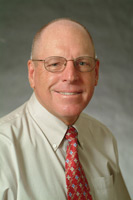
Doctors who care for the poor: Paying the hidden cost of Medicaid
A groundbreaking study has finally put a dollar figure on a previously unanswered question: how much do physicians’ practices, due to government regulation, pay to ensure their poorest patients get the right prescription drugs? Turns out the answer is $8.02 per prescription, on average, or $1,110 annually for high blood pressure and high cholesterol medications alone, according to research from Jonathan D. Ketcham, an assistant professor at the W. P. Carey School of Business, and Andrew J. Epstein, an assistant professor at the Yale School of Medicine.





